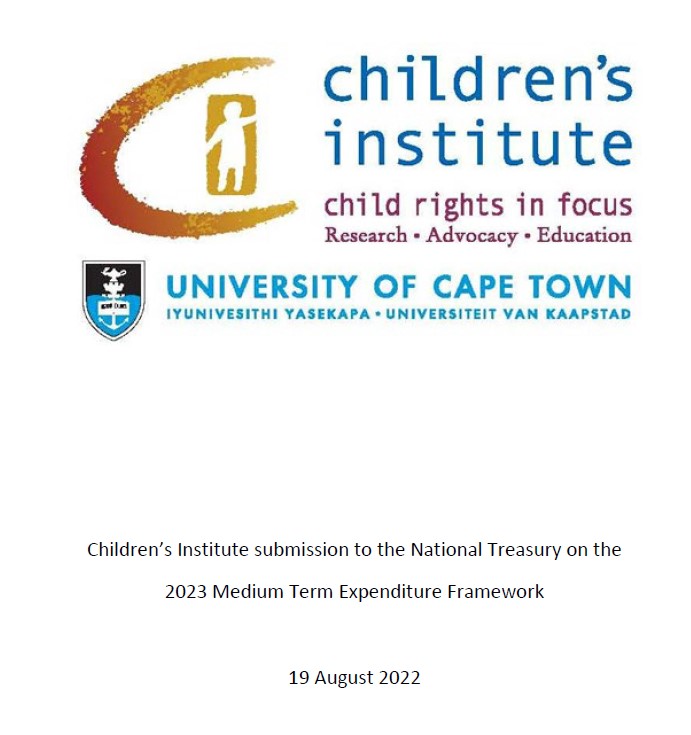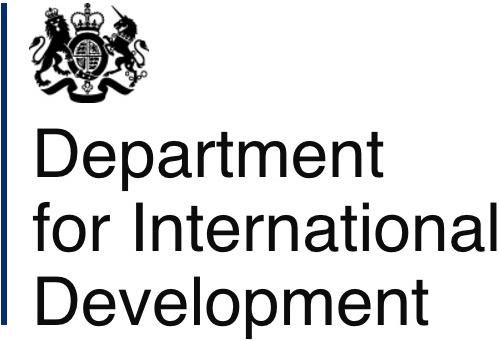Definition
This indicator shows the number of children who are accessing the Care Dependency Grant (CDG) in South Africa, as recorded in the SOCPEN administrative data system of the South African Social Security Agency.Data
Source
South African Social Security Agency (2007 - 2024) Social grant statistics. Pretoria: SASSA.
Notes
SOCPEN figures are taken from the end of March each year (the financial year-end).
What do the numbers tell us?
The CDG is a non-contributory monthly cash transfer to caregivers of children with disabilities who require permanent care or support services. It excludes those children who are cared for in state institutions because the purpose of the grant is to cover the additional costs (including opportunity costs) that the parent or caregiver might incur as a result of the child’s disability. The child needs to undergo a medical assessment to determine eligibility and the parent must pass an income or ‘means’ test.
Although the CDG targets children with disabilities, children with chronic illnesses are eligible for the grant once the illness becomes disabling, for example, children who are very sick with AIDS-related illnesses. Children with disabilities and chronic illnesses need substantial care and attention, and parents may need to stay at home or employ a caregiver to tend to the child. Children with health conditions may need medication, equipment or to attend hospital often. These extra costs can put strain on families that are already struggling to make ends meet. Poverty and chronic health conditions are therefore strongly related.
It is not possible to calculate a take-up rate for the CDG because there are no reliable data on the number of children with disabilities or who are chronically ill, and in need of permanent care or support services. At the end of March 2025, there were 175,000 children receiving the CDG, and from the beginning of April 2025, the grant was valued at R2,310 per month.
The provincial distribution of CDGs is fairly consistent with the distribution of children. The provinces with the largest numbers of children – KwaZulu-Natal, Gauteng, the Eastern Cape and Limpopo – receive the largest share of CDGs, though the number of CDG recipients has also increased in the Western Cape. There has been a gradual but consistent increase in access to the CDG each year since 1998, when only 8,000 CDGs were disbursed.
Although the CDG targets children with disabilities, children with chronic illnesses are eligible for the grant once the illness becomes disabling, for example, children who are very sick with AIDS-related illnesses. Children with disabilities and chronic illnesses need substantial care and attention, and parents may need to stay at home or employ a caregiver to tend to the child. Children with health conditions may need medication, equipment or to attend hospital often. These extra costs can put strain on families that are already struggling to make ends meet. Poverty and chronic health conditions are therefore strongly related.
It is not possible to calculate a take-up rate for the CDG because there are no reliable data on the number of children with disabilities or who are chronically ill, and in need of permanent care or support services. At the end of March 2025, there were 175,000 children receiving the CDG, and from the beginning of April 2025, the grant was valued at R2,310 per month.
The provincial distribution of CDGs is fairly consistent with the distribution of children. The provinces with the largest numbers of children – KwaZulu-Natal, Gauteng, the Eastern Cape and Limpopo – receive the largest share of CDGs, though the number of CDG recipients has also increased in the Western Cape. There has been a gradual but consistent increase in access to the CDG each year since 1998, when only 8,000 CDGs were disbursed.
Technical notes
SOCPEN (the administrative database of the Department of Social Development) records the number of Care Dependency Grants paid out every month. The figures are taken from daily reports for 31 March of each year, which is the end of the government budget cycle. For 2007 (the earliest year with available data from SASSA) the numbers are taken from the end of July.
Strengths and limitations of the data
Information on social grants is derived from the Social Pensions (SOCPEN) national database maintained by the South African Social Security Agency (SASSA), which was established in 2004 to disburse social grants for the Department of Social Development. Prior to this, the administration of social grants and maintenance of the SOCPEN database were managed directly by the department and its provincial counterparts.
There has never been a published, systematic review of the social grants database, and the limitations in terms of validity or reliability of the data have not been quantified. However, this database is regularly used by the department and other government bodies to monitor grant take-up, while the computerised system, which records every application and grant payment, minimises the possibility of human error. Take-up data and selected reports are available from the department on request throughout the year, and are also published every month on the SASSA website. Children Count provides grant take-up figures as at the end of March.
There has never been a published, systematic review of the social grants database, and the limitations in terms of validity or reliability of the data have not been quantified. However, this database is regularly used by the department and other government bodies to monitor grant take-up, while the computerised system, which records every application and grant payment, minimises the possibility of human error. Take-up data and selected reports are available from the department on request throughout the year, and are also published every month on the SASSA website. Children Count provides grant take-up figures as at the end of March.

 The SAECR 2024 tracks trends on the status of children under 6.
The SAECR 2024 tracks trends on the status of children under 6. 











